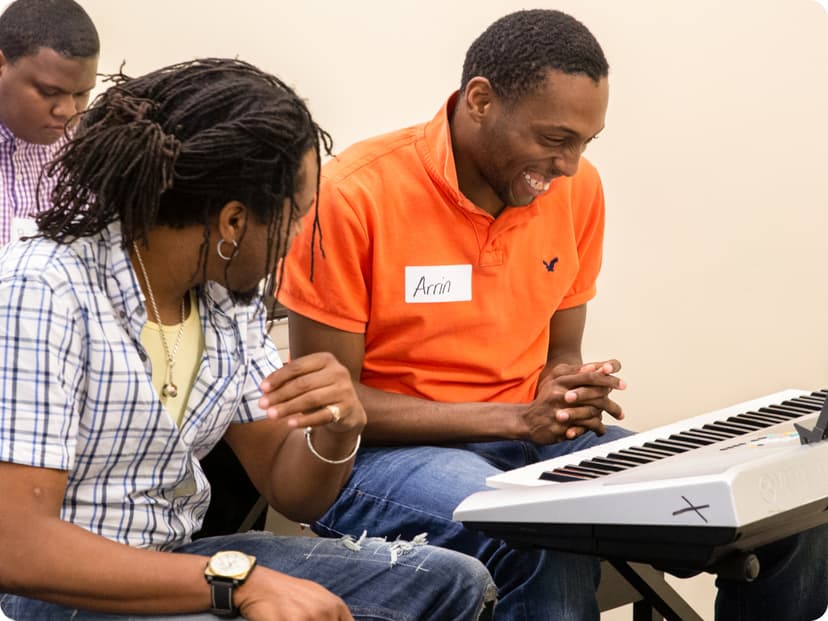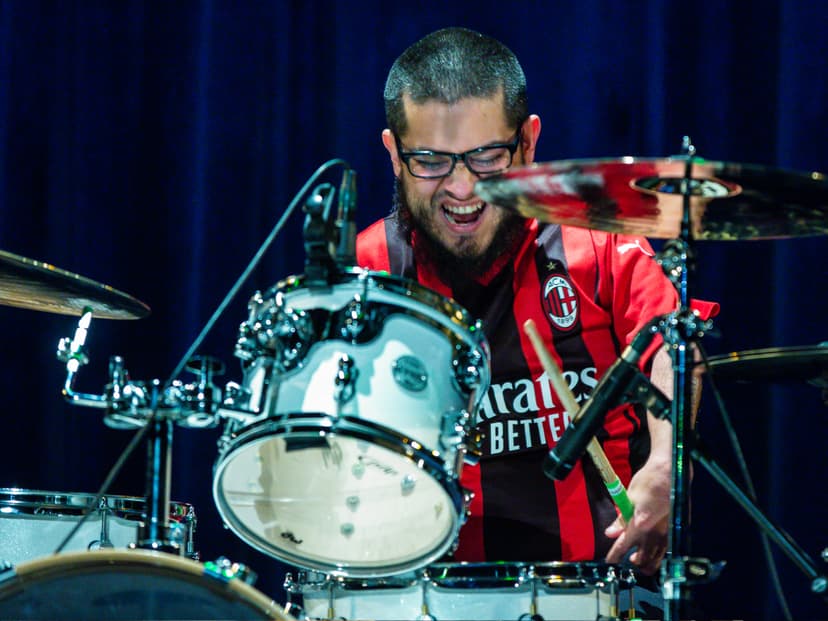Using music to soothe and interact with a baby is one of the most instinctive things in the world for most parents, yet many moms and dads don’t realize that they are actually influencing the cognitive, social, and emotional development of their child’s brain.

“What’s important to note about music in our brain is that it stimulates every part at the same time as well as neuroplasticity (brain connectivity), which is very important for babies,” says Elena Savvides, the lead instructor of the Baby & Me classes at Daniel’s Music Foundation. “It’s truly a sensory powerhouse for them.”
Because humans are pre-wired to appreciate music, early engagement in music experiences has a large effect on cognitive skills. Here, we discuss four ways music fosters brain development in infants and toddlers.
Language Acquisition and Reading Skills
Like an indiscriminate sponge, young brains have a way of wanting to absorb every part of their environment. When trying to communicate with their parent or caregiver, babies tend to emulate the speech they hear in their own unique way.
“Music helps to facilitate communication and with actual speech intelligibility,” says Elena, who also works in a rehabilitation hospital and incorporates similar techniques in her co-treated speech pathology sessions for children recovering from strokes and other ailments. “It can help us learn how to make certain vowel sounds, how to speak in different volumes and intonations, and help facilitate and learn basic speech skills.”
Similarly, the ability to read depends on making a connection between the sounds of letters and symbols on a page, so when an infant grows and enters into childhood, these previously instilled verbal communication skills translate into increased reading comprehension.
Motor Development
Because it influences every part of the brain, music also stimulates the region around motor development by channeling actions and unique modes of movement.
“Especially if you add something rhythmic,” explains Elena. “We’re naturally very rhythmic as human beings and have an innate ability to match a specific rhythm, for example when we’re walking or running on the treadmill.”
According to Elena, the brain is adapted to entrain to a rhythm because unborn babies hear their mother’s heartbeat almost exclusively for the nine months they are in utero. By channeling this natural adaptation through the use of instruments like shakers, drums, chimes, and piano, Daniel’s Music Foundation helps babies develop hand coordination and hone their fine gross motor skills.
Self-Expression
Even before understanding the words in a song, babies can often be seen bouncing or moving their hands to its tune or beat. What this implies, is that music has a profound effect on the early development of self-expression.
“It’s one of the most impactful ways of creatively expressing yourself, especially here at Daniel’s Music, where a lot of our participants and students don’t have the ability to speak or to express themselves in standard ways.”
By exposing developing minds to various instruments and musical genres, Elena and her colleagues give them a fun outlet to share their emotions and whet their imaginations, while simultaneously teaching them about different parts of the body, as well as how to count and collaborate in a group.
“I think you’re never too young to learn about Motown music and Caribbean music,” says Elena. “We take them on some musical adventures with different instruments. I think that piece is really important, and teaches kids how to communicate and play through music.”
Memory Skills
Since music is stored throughout the brain, it helps with something called neuroplasticity — the ability to connect healthy neurons to other neurons that haven’t been activated in a while to form new neural connections. Acting as a liaison for bridging all the brain’s various regions, music creates strong access points to memories and can drastically improve recall function in the long-term.
“There are a lot of articles and research that talk about music and memory, especially with songs that we have a connection to since we were kids,” Elena says. “Music helps unlock information in the hippocampus and frontal cortex which is associated to memory, so we can hear a song that we haven’t heard in years and automatically know all the words and lyrics.”

